You are using an out of date browser. It may not display this or other websites correctly.
You should upgrade or use an alternative browser.
You should upgrade or use an alternative browser.
Articles
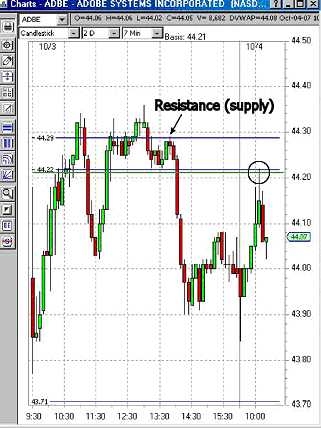
Does your trading lack the "trader's edge" needed to be a consistent winner in the markets? Do you find yourself entering and exiting positions at the very wrong time? If the answer is yes, you're not alone. The good news is that there is a very specific reason why the majority of traders enter and exit trades with very poor timing. Also, the answers needed to fix this problem are far simpler than you may think. To gain the edge and learn how to stack the odds in our favor, we will go back to the school of basics, not just to review the basic concepts but more importantly to look at them very differently than we have before. We know that if we look at charts, indicators, and any other tools used to perform market analysis the same way...
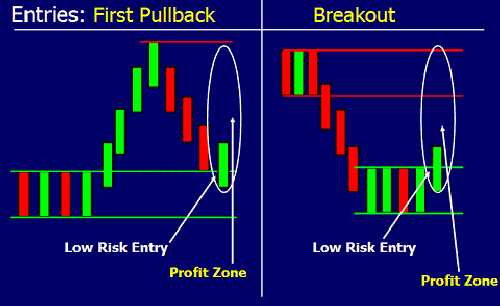
The most important thing in any type of trading is to have a solid set of rules and then to have the self control to follow those rules. Day traders especially need to have rules to follow as emotion can and will have you buying and selling at the wrong time.
Day Trading Rules:
Only enter trades when price is at a support (demand) or resistance (supply) level, no matter what time of day or night.
Two types of entries: Breakouts and first pullbacks (see below).
Each day, identify one demand and supply level in each market, using a larger intra-day time frame. Always know where the market is in the larger picture with regard to supply and demand.
Only trade opportunities that offer at least a 3:1 profit zone to the first target...
When traders talk about the 'Positive Expectancy' of a strategy or system, what is it that they mean?
I have been watching as a several people on a forum discuss, argue and lend their ideas about entry techniques. They are going crazy over what the proper entry should be and why one chart pattern is better than the other. One person has even said how they purchased massive amounts of software to help them enter the market. Now don't get me wrong, I always use techniques to get me in the market but I understand that this is the least important factor weighing on an investor's overall success. I use technical analysis every day and I study patterns that allow me to enter with the ideal buy point (what I believe to be the ideal entry) but...
We take a basic look at what Swing Trading is and how to use it in trading.
Trading Categories
In our opinion, there are three broad categories that can be used to classify all trading methods. These categories are based around the amount of time a speculator holds his or her position in the market. These classifications are described below:
Short-term - Traders hold positions from a matter of seconds to several hours but rarely longer than 1 day. Examples: Day Traders: Scalping, momentum breakouts.
Medium-term - Once a position is held for longer than one day it can be classified as a medium term or swing trade. Traders hold positions from several days to weeks. Examples: Technical and fundamental swing traders.
Long-term - Traders...
You've decided to get started as a trader or investor, but where do you start? The answer as always is very simple and the process I will take you through applies to virtually all markets (particularly shares, stocks and derivatives of these i.e. options and spread betting) Once you move into other markets (currency for example) you would have a different set of data and charts.
One important point to note, is that those of you who have full time employment and are just doing this for longer term investment, or to build up experience, all of the following can be done in the evenings or at the weekend. You may remember that I have said before, you do not need live data to start with - end of day data is fine. You also do not have to be...
Have you ever wondered how Warren Buffet made his millions? In this article we look at the concept of compounding.
Some of you know about this, some of you don't. Either way I'm going to give you the basics of compounding, plus a couple of new slants on the concept. I suggest you read The Magic of Compounding not just once, but several times. If you have children, print this write-up and give it to them to read. If they master this concept they will become rich.
The Basics
Compounding describes how numbers, or money, can grow. Numbers can grow in an arithmetic progression, for example 2,4,6,8,10,12 or 3,6,9,12,15,18, where one unit is added on at each step in the progression and that action provides the growth, or, numbers can grow...
What does it mean to short a stock?
This means that you borrow the stock from your broker to sell to a third party. The idea is to buy back the stock at a lower price, returning the shares to your broker while leaving the remaining cash in your account as a profit. Put another way, a short seller does not own the stock before they sell it. Instead, they borrow it from another investor who already owns it. At a later date, the short seller buys back the stock they shorted and returns the stock to close out the loan. If the stock has fallen in price since they sold short, they can buy the stock back for less than they received for selling it. The difference is your profit.
Short selling is a transaction made on margin. This means that...
Introduction
This article refers to financial spread betting. This means that we are talking about stock, index, future, forex, treasury, commodity and market sector spread bets. If you are looking for information about sporting spread bets then unfortunately this article will be of no use to you.
Depending on your geographical location and the legal jurisdiction you fall under, spread betting may or may not be available to you. For example, gambling laws in the US may prohibit spread betting as it is classified in the same bracket as visiting a casino.
Spread betting has evolved in, and is dominated by, specialist UK firms. The concept was first introduced over 30 years ago when a bookmaker devised a way of betting on futures...
Why do people trade? For most, their primary motivation is to make money. Sure, there are secondary reasons however they all stem from the undeniable urge to make money.
Ironically, this would have to be the main reason why people fail. With most of our trading decisions, it is only natural that we focus on making money because this is the main reason we consider trading in the first place.
Whilst I concede the idea of making money is important, it is not as important as protecting the money that you have to trade with. I think Paul Tudor Jones says it best when he said, "Don't focus on making money, focus on protecting what you have."
Stephen Waugh is a former Australian cricketer and was the captain of the Australian Test...
Charles H. Dow
It is interesting and amazing to note that not until Charles Dow started compiling the Dow Jones Industrial and Dow Jones Rail Index and started writing about the stock market a little over a hundred years ago, stock speculation was regarded merely as a game for the rich or as gambling for the brave. Sure, there were the tape readers, but the majority of the public regarded Wall Street as a source of excitement - the entertainment provided freely (unless you were on the wrong side) by figures such as Cornelius Vanderbilt, Jay Gould, and the infamous Daniel Drew.
In a series of stunning editorials for the Wall Street Journal at the turn of the century, Dow laid out the foundation of his own theory on the stock market...
I love to collect quotes as they concisely promote a philosophy which is readily understandable.
In my 25+ years of investing I have collected hundreds of quotes related to Wisdom, Wall Street and Success. I submit this small selection with the hopes that it will enlighten the forces required for your future financial success. Enjoy!
1) ?Money really isn't that important. Is a guy with fifty million dollars happier than a guy with forty eight million dollars?? - Milton Berle
2) ?With money in your pocket, you are wise and you are handsome and you sing well too.? -Yiddish Proverb
3) ?Money is always there, but the pockets change.? - Gertrude Stein
4) ?Spend at least as much time researching a stock as you would choosing a...
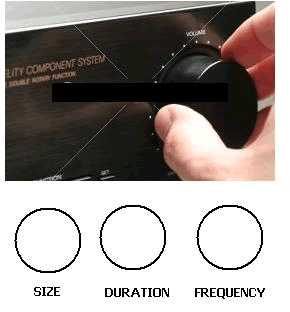
Risk management isn't just about having your 'stop-loss' in place. So what else is it about?
Any trader who knows his salt will tell you that Risk Management is the single most important aspect in trading, regardless of style or technical strategy. Yet, most traders are really not able to define what "Risk Management" really is. Let's pause for a moment, and think: can we define, in one brief sentence, what Risk Management is? "Loss control" would probably be the best broad definition, but to me this is a little more precise: In the business of trading the financial markets, Risk Management is the constant modulation of Risk Exposure to a constantly changing market. What is this exactly?
Most participants will relegate their entire...
Here we take a beginners look at what the Stock Market is and how it works.
Introduction
Apart from the glitz and panache of Hollywood or the iconic World of the pop star the stock market is probably seen as the most glamorous way of making a living (and a very healthy living at that!). Over recent times advances in technology have made the Stock Market far more accessible to the general public. This has made the possibility of becoming rich from stocks far more realistic than obtaining a record deal or a landing a role in a Hollywood production.
Unfortunately involvement in the Stock Market is not a one-way street. It is commonly acknowledged that losing a fortune in Stocks is much easier than gaining one. You will constantly see...
Introduction
The key to successful trading is having a methodical approach and not being emotional about your trading decisions. Never forget that it is always best to accept when you are wrong and cut your losses where appropriate.
Technical analysis, also referred to as "charting", involves the use of charts or graphs to present historical performance and price changes at a glance and the ability to use this information in order to make investment decisions.
The first golden rule of technical trading is, where possible, to keep charts as simple as possible.
Technical Analysis and Charting
Even those new to trading will be familiar with the image of a chart in relation to the financial markets. They appear on City Traders? screens...
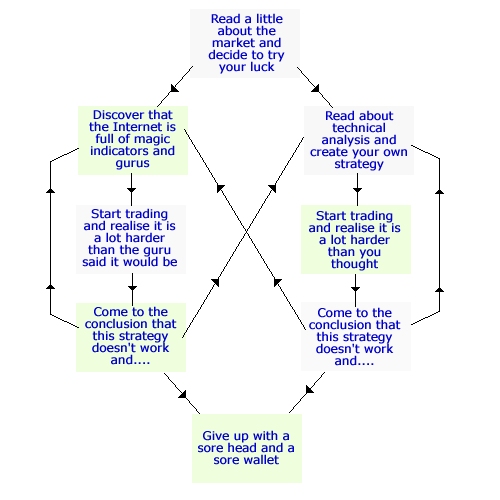
Introduction
The Holy Grail is quite possibly the most famous piece of Christian mythology. Almost every archaeologist, historian, Christian and capitalist would love to find it, and many dedicate their lives towards its pursuit. It is said that those who drink from The Grail will be blessed with eternal life, whether that is spiritual or physical is open for debate (unless you have read "The Da Vinci Code" where the last thing you would do is drink from it!). Perhaps that explains why Indiana Jones may appear in a fourth film despite his increasing age.
When we talk about the Market Holy Grail we don't mean a cup that promises ever lasting life, more a cup that you can dip into the markets and pull out a never ending supply of money...
What are the major pitfalls that every new trader faces? And how can you avoid them?
So you want to trade, eh? Or have you already started? What drew you to it? Was it the huge profit potential? Maybe it was the excitement. Or perhaps you love the challenge of solving a big, multi-dimensional puzzle.
Trading can be rewarding. You can make lots of money. You can have tons of fun. You can have something to brag about to your friends. Unfortunately, trading can also just as easily lead to financial distress and high blood pressure if you don't go about it the right way.
Whatever the case, there's certainly a number of things that make trading the financial markets worthwhile. At the same time, however, there are some huge obstacles...
The author looks at ways of protecting your capital when trading commodities.
The commodities / futures markets empty the accounts of thousands of traders every year. For most entering trading, and this is true for over 90%, trading commodities means a very certain financial death.
The markets are ruthless and will send people home empty-handed without a care.
The opportunities for making money are numerous, and the leverage entices so many people to jump in head first, that it is unreal. It is the ultimate, white collar get-rich-quick arena.
Unfortunately, like all other areas that the get-rich-quick opportunities are being sold, the ratio of losers to winners is absolutely horrific.
First thing to do to avoid being one of the...
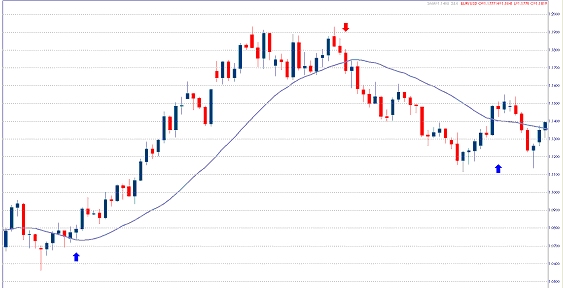
The author looks at ways of profiting from trends by using Moving Averages.
Identifying and profiting from trends can be at times divergent topics and this dissociation can easily translate to losing trades. While trend analysis, as defined by trend and channel lines, ratio and extension analysis is vital, traders should also go beyond pattern recognition and employ quantitative methods of analysis. One of the most popular tools is moving averages.
What Is a Moving Average?
A moving average smoothes market swings, as some traders prefer to keep the statistical noise at a low level. To calculate a simple average, simply determine the arithmetic mean. To make an average move, just add the last price of the period of you choice, while...
So you want to trade for a living? In this article Geoff Turnbull looks at what you need to consider before you take the plunge.
There can't be many traders who haven't at least considered the idea of telling the boss what they think of him, throwing it all in and going off to trade the stock market for a living. It's a big risk financially, and that uncertainty is what stops most from jumping ship. Is it really possible to trade for a living?
The Dream
You know how it is, you're sitting in a traffic jam at some unearthly hour of a particularly wet and miserable morning, on the way to the same office you have sat in for too long to remember, and you're thinking - there must be a better way - life shouldn't have to be like this. Your...
In this article the author looks at the Seven 'Sins' of Trading and what action we can take to avoid them.
By studying at the most frequent reasons for failure, we can avoid making the same mistakes as the crowd, and thus turn these negative points into positives. In this article, I will be looking at the seven most common mistakes I see made by traders.
Mistake Number One - Switching Strategies
or "The Hunt For The Holy Grail"
The holy grail of trading - we've all looked for it - the super system that never loses. We've searched forums, read books, been to seminars, discussed in chatrooms, but the secret system that wins every time continues to elude us.
Why do we waste so much time and effort searching for something that doesn't...
The rules that should be 'Utterley Simple Rules of Trading' but which we all seems to find 'Utterley Difficult!'
The world of investing/treading, even at the very highest levels, where we are supposed to believe that wisdom prevails and profits abound, is littered with the wreckage of wealth that has hit the various myriad rocks that exist just beneath the tranquil surface of the global economy. It matters not what level of supposed wisdom, or education, that the money managers or individuals in question have. We can make a list of wondrously large financial failures that have come to flounder upon these rocks for the very same reasons. Let us, for a bit, have a moment of collective silence for Long Term Capital Management; for...
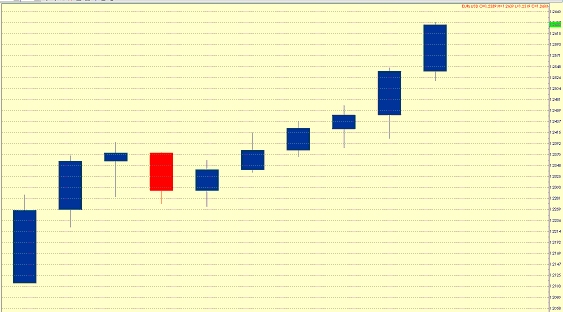
Candlestick charts are widely used by traders around the world, as superficial demarcations between East and West are thankfully fading away. While bar charts are still more popular because of sheer inertia, there is little doubt that candles provide much more information, even though both types of charts are based on the same prices. Let's take a look at the advantages of using candles when gauging the validity of intersections.
Traders make a big deal about prices breaking support and resistance lines, trendlines, moving averages and retracement or extension levels. However, intersecting these lines on an intraday basis and closing outside them are two very different ball games.
Benefits for Using Candlesticks
Let's quickly...
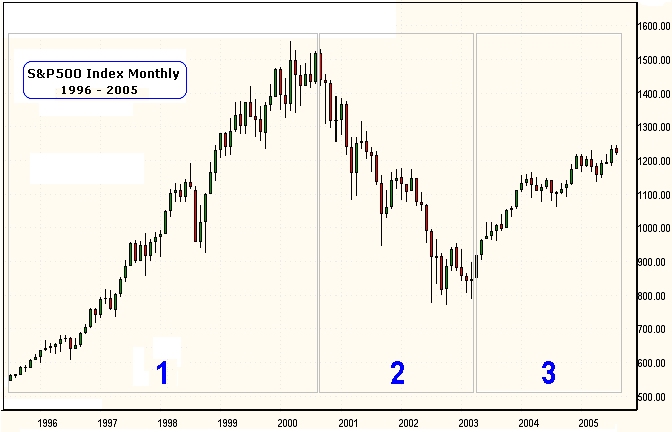
As a Short-term trader do you ever look at longer term time frames? If not, then this article will explain why the longer term time frames can influence the shorter intraday ones.
Most independent Short-term Traders tend to ignore the Long-Term technical condition of the Market because they believe it is not important in their trading. Few things are further from the truth, that is, if you want to survive the market over a long period of time, and still be trading years, even decades from now.
In the same manner that the tides can raise or sink all ships, the larger trends, behavior and technical design of the markets greatly affects ALL independent traders, regardless of trading style. You can have an independent short-term trader...
A brief look at three important principles that no trader should overlook, if they intend to be successful.
It is a given that traders cannot win 100 percent of the time, because with reward comes risk, and losses are as much a fact of life as taxes and death. But there are highly valuable lessons to be learned about the trading process that go far beyond the dollar signs. How traders put reliable steps in place to ensure that their performance may be enhanced on the road to success is critical. For most success is dependent not only on what is done correctly but also on what potentially havoc-wreaking mistakes can be avoided and/or corrected.
There are three principles that can aid in anticipating and possibly avoiding mistakes, they...
Dr Doug "The Head Coach" discusses the psychology of trading and the similarities between coaching the top athletes and the top traders.
How did it all start? (How did you get into trader coaching?)
I played baseball my whole life and through college (I was a catcher). When I graduated, I got a job on trading floor for a proprietary trading firm at the Chicago Mercantile Exchange. They used to hire athletes almost exclusively because they believed athlete's made better traders. Anyways, I worked there for a few years and then a herniated disc in my lower back forced me to leave the floor and trade equities electronically. I did that for about 9 months and then realized I wanted more out life so I left the trading world to go coach...
Achieving success in trading requires avoiding numerous pitfalls as much, or more, than it does seeking out and executing winning trades. In fact, most professional traders will tell you that it's not any specific trading methodologies that make traders successful, but instead it's the overall rules to which those traders strictly adhere that keep them "in the game" long enough to achieve success. Following are 10 of the more prevalent mistakes traders make.
This list is in no particular order of importance.
1. Failure to have a trading plan in place before a trade is executed.
A trader with no specific plan of action in place upon entry into a trade does not know, among other things, when or where he or she will exit the trade, or...

Take a look at the nice up-trend on the chart below. There are plenty of reasons to have entered around £10 and sat comfortably in your armchair until some warning signs and an exit around £14, or even higher. A 40% rise and an easy 400 or so points - easy in hindsight that is. We can't trade hindsight, of course, but a simple swing trading technique would have served you well in real time.
Good trends like this develop by taking a run forward followed by a few paces back (retracement) followed by another run forward and a few paces back and so on. Simple swing trading seeks to take advantage of trend continuations by identifying those significant retracements in order to provide points of entry and a level of exit for ongoing...
Being English (although I am now a Naturalised Aussie too) I am a huge soccer fan. This season my club Liverpool have enjoyed a wonderful run of success in the European Champions League, the most prestigious club competition in the world and they will play in the final which takes place before this edition hits the newsagents. Imagine my glee therefore when I was sent the following statistics in an email before the Quarter-finals which took place a few weeks ago:
LIVERPOOL FC ** Too much of a coincidence?? You decide.
1978 - Welsh Grand Slam. Pope Dies. Liverpool win European Cup
2005 - Welsh Grand Slam. Pope Dies. ???
1981 - Prince Charles gets married. Ken and Deirdre marry on Coronation Street. A new Dr Who is appointed...
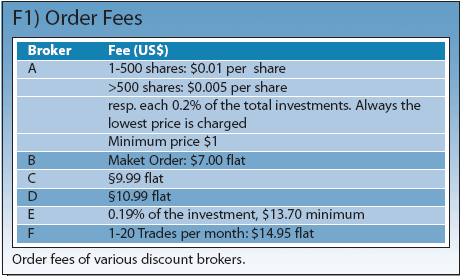
Traders go to great lengths optimising market strategies and trading systems to obtain good profitability. Unfortunately, those profits often deteriorate substantially after factoring in order fees. This article examines the effect of various broker commissions on portfolio performance and determines the optimal investment size needed depending on broker fees. The choice of broker greatly determines if a trader survives successfully in this business or quickly gives up in frustration.
Brokers use various methods to determine their pricing structures. They are often based on either block pricing (i.e. number of stocks per trade, investment amount, trading activity) or fixed pricing, better known as flat rates (fees independent of number...
